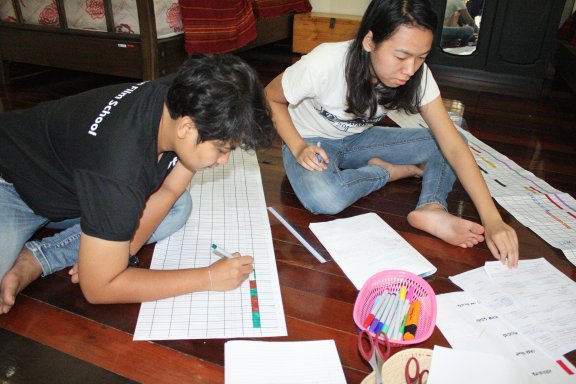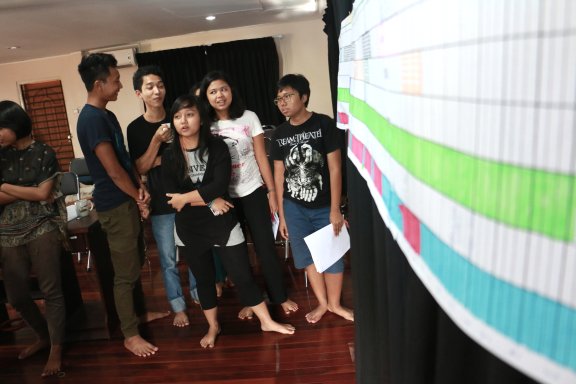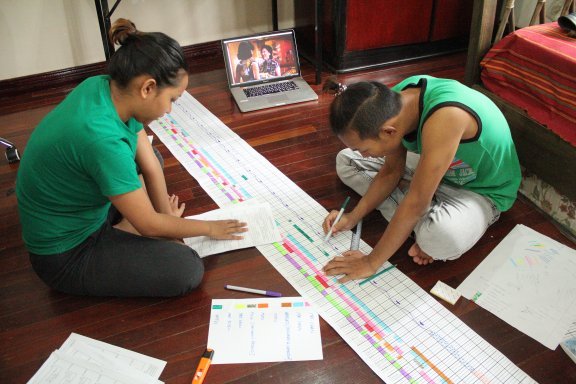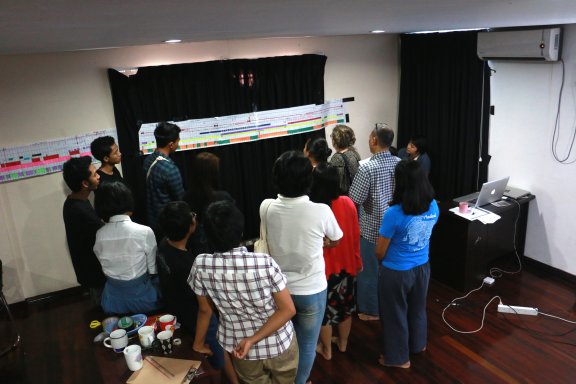Compulsory for all YFS students, this three-week course gives emerging filmmakers the ability to distinguish between different editing methods in documentary and/or fiction and to understand how editing can be used to build a film’s intensity.





Compulsory for all YFS students, this three-week course gives emerging filmmakers the ability to distinguish between different editing methods in documentary and/or fiction and to understand how editing can be used to build a film’s intensity.
Frequently tutored by a revered member of the independent Myanmar film scene, this three-week course is compulsory for all YFS students enrolled on the School’s three-year study programme. It is designed to give emerging filmmakers the ability to distinguish between different editing methods in documentary and/or fiction filmmaking and to understand how editing can be used to build a film’s intensity.
The course analyses both classical film dramaturgy and current developments in contemporary World Cinema. It also provides a window on contrasting film cultures and different kinds of filmic expression around the globe.
After an opening series of lectures on character and emotion, the tutor deconstructs a classic or contemporary documentary or fiction film and places its structure and cinematic elements on a timeline for the class. The students then work in groups to deconstruct another film in the same manner, with the selection of films specifically chosen to ensure there is a contrast of country of origin, dramaturgy and filmmaking techniques.
The students investigate the characters, plot, theme(s), dialogue and meaning of their allotted film, undertake a scene-by-scene analysis and create a timeline of its events and the audience’s emotional response. Each group reports their findings to the class and the tutor leads further discussion about their analysis.
Take a look at how this course works in the film About the 2018 How Films Work: Film Analysis course below.
Films recently analysed on the course include: